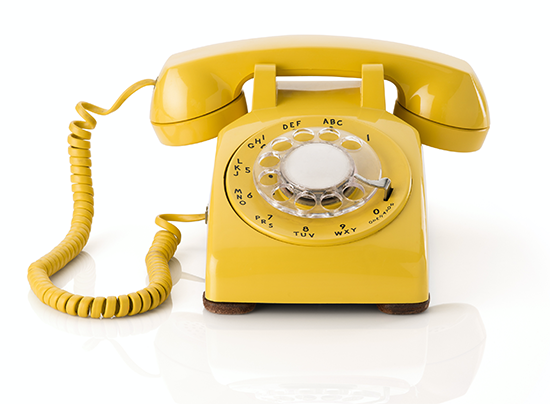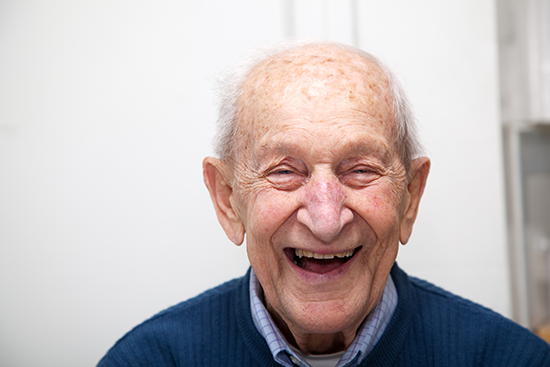
August-
September
2020
Parenting,
Politics, and a
Post-COVID Culture
------------------
|





Just Call Me Old!
By Brenda Evans
Call me fusty—I don’t care. Fusty works because I am old-fashioned about some things. And most mornings, I feel stiff and dried out as day-old bread. I am sometimes closed up, unreceptive to certain new ideas or gadgets. So go ahead, call me fusty.
Just don’t call me elderly—not yet anyway. But when? If you google that question, you’ll find “most of the developed world accept the chronological age of 65 as elderly.” Who cares what most of the developed world says?
Part of my resistance is about labels in general. Elderly labels you, assigns you to a box, seals the lid, and warns people about the contents: Handle with Care. It’s like that tag inside a garment that tells you what the garment is and what it is not: size, brand name, and instructions for care.
Labels don’t work as well for us human beings made in the image of God. Sure, I’m old. Sure, I’m retired. No problems there, yet those two labels only fit a small part of me. What about the rest of who I am?
Another part of my resistance is ego. Plain old pride. Harsh images rattle around in my brain when I’m called elderly: weak, unsteady, vulnerable. In comparison to forty years ago, I’m all of those. I’m also more cautious. I’m not invincible. I can’t do everything I did back then. I’ve thought about what I should rightly call myself, and I’ve collected 35 options. Here are some of them.
Old. I call myself old, and so does the Bible. At 77, I can’t deny it. I’m gray, have that “hoary head,” Solomon mentions in Proverbs 16:32. Gray, silver, white—no problem. Plus, Leviticus 19:32 says “honor the face of the old man, and fear thy God.” So I accept gray hair, wrinkles, dry skin, liver spots, arthritic knobs, and spidery veins. My old age can be a testimony, may be honored, if I live Christianly before God and man.
I have hand-written Isaiah 46:3-4 in my promise notebook. I’ll paraphrase: the Lord made me and saved me. He’s borne me and carried me. He will continue to carry me even to my old age and gray hairs. I’m old, I’m gray, and I’m carried by my Lord. Hallelujah!

Septuagenarian. The term comes from a Latin word, and, again, I can’t deny it. Anyone in her 70s is a septuagenarian. Maybe I will become an octogenarian (80s), even a nonagenarian (90s). I hope so. Both Psalms and Deuteronomy remind me long life and prolonged days are a blessing from the Lord.
Pre-boomer. Boomers were born between 1946 and 1964 or there about. Since I’m older than that, I accept Michael Medved’s label of pre-boomer, though I’m not fond of it. Of course, pre-boomer isn’t the same as pre-historic, which I would give two thumbs down.
Grizzled geezer. Here I will quibble with Medved. In a political column back in March, he referred to several 2020 presidential candidates—both male and female in their 70s—as grizzled geezers. Grizzled, I’m okay with. I do have gray hair, but geezers are old men. I reject geezer. I am not one.
Second childhood. In Mere Christianity, C. S. Lewis describes what he calls “a fully Christian society.” A society, among other things, with “no passengers or parasites.” Certainly, Lewis is not referring to us oldies there, but I thought of us anyway as I read that passage again this week. We older people are concerned (and sometimes worried) about going into a second childhood that turns us into passengers who can no longer drive (both literally and metaphorically). A new stage of life where we just go along for the ride like little children do. We want to stay a “participant” as Lewis says, not a passenger, not an infant in a carseat. Nor do we want to be parasites, dependent on others.
But the time will come when we are. Some call it second childhood. We will quit driving, give up the keys, those small pieces of metal that are symbolic of so much: adulthood, independence, proficiency, freedom. Without keys, we become passengers, not drivers. We feel like takers (parasites), not givers. Hard words. In the meantime, I wait and trust, and stay a participant as long as I can. And when I can’t, I will hand over the keys and lean on that Isaiah promise: “I will carry you.”
The Temperate Zone. My favorite book about an old person is Wendell Berry’s The Memory of Old Jack. One day, Old Jack seems to be dozing, though he isn’t. He is “deeply and quietly awake…in the temperate zone,” a zone of life that has come to him “unasked.” He sees it as “a blessing, and he will stay in it as long as he can.” Yet, Old Jack resists the passivity that is part of that zone, “the sense of having nothing to do, no intention.” He is not pleased that the afternoon “will fill itself with what he will let happen, not what he will make happen.”
I identify with Old Jack. Letting things happen and making things happen are far different. In that zone, Old Jack notes that another of the several “inexorable hinges of his life has turned.” We old people know about inexorable hinges. Sometimes, these hinges of life rust and squeak and squawk and scare us. Other times, they are oiled with grace and peace and gladness. So, we accept these zones and their inexorable hinges.
Perennial. Dr. Laura Carstensen, director of Stanford Center on Longevity, calls us old people perennials, as does former secretary of state Madeleine Albright. Perennial “implies reinvention,” Dr. Carstensen says. True, perennials like asters and day lilies, asparagus and rhubarb keep bursting through the soil year after year. I like perennials, but I don’t want to be called one. Nor do I want to reinvent myself.
Then there are the more common labels: the aged, senior citizen, mature adult, retiree, post-retiree. I laugh at long-in-the-tooth. It suggests I might be a horse. I’ve also heard sage. Not the aromatic plant with grayish-green leaves used in cornbread dressing at Thanksgiving, but a profoundly wise person from history or legend. I’m not legendary or profoundly wise, so mark that one off. One Gen-X guy labeled us creaky elders from the olden days. Which proves there are still impudent, young whippersnappers on our planet!
Christian author Richard Foster said that on a hike in the mountains, one of his grandchildren called him a SOM (Slow Old Man). He didn’t say so, but I suppose that means we older females are SOWs (Slow Old Women). Don’t even consider calling me that. My list includes 17 more, but I will just mention these last two.
Young-old and old-old. I like those, especially young-old, because I want to think I am. I tease my husband, Bill, that he must be old-old since he became an octogenarian last year. One woman my age told me, “I’m 25…plus shipping and handling.” She claimed she invented the saying. She didn’t. She read it somewhere. Old people do sometimes lie. A recent survey asked How old is old?
Eighty-five percent of respondents ranging between 40 and 90 said they were not old yet, and almost half believed they look younger than they were. Dave Barry quipped that we older Americans must have terrible eyesight.
I am mainly encouraged about being old. Luke, the physician and writer, believed old people weren’t just along for the ride, but were still participants in this Christian life. Zachariah was old and Elizabeth advanced in years (1:18) when the Lord gave them John the Baptist. Anna, the prophetess was at least 84 but still worshiped and spoke out at the temple (2:37-38). The Lord is not finished with us old people yet, no matter what label people put on us.
Near the end of Wendell Berry’s novel, one of Old Jack’s friends says, “time will finally make mortals of us all.” Another friend chimes in, “if we don’t die first.”
That is true, but until then…
About the Writer: Brenda Evans lives and writes on the banks of Rockhouse Fork in Ashland, Kentucky. You may contact her at beejayevans@windstream.net.
|
|

